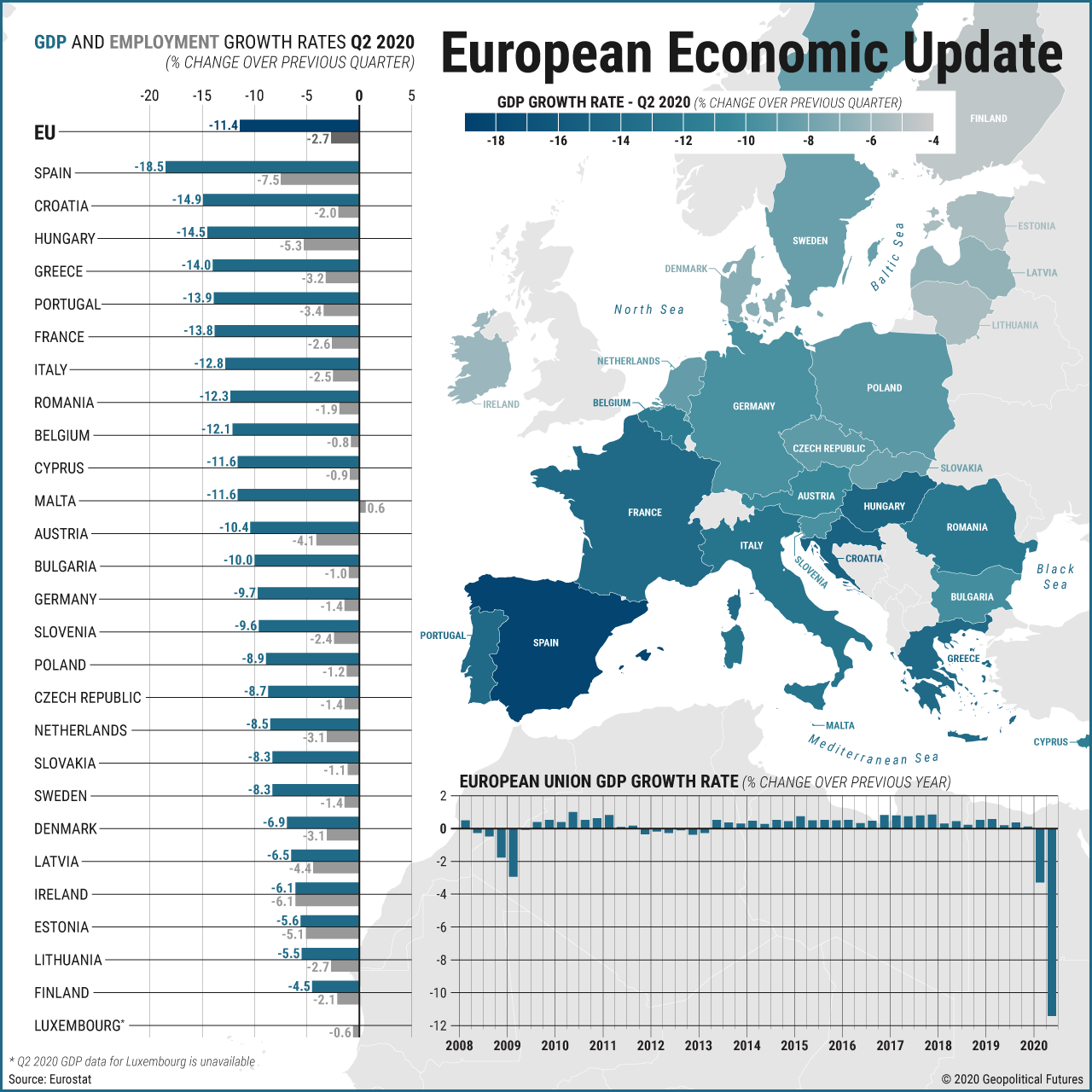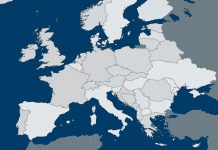A second wave of COVID-19 has hit Europe. Health officials predicted this outcome as governments lifted social restrictions, which permitted the virus to spread. Now, governments again must grapple with whether to reimpose restrictions, with all the negative consequences that entails for economic activity. The above figures illuminate what those consequences looked like at the height of Europe’s lockdowns.
Looking at the steep decline in gross domestic product and employment, it’s apparent why countries are hesitating to reimpose anti-coronavirus measures. This time around, we are seeing a more targeted approach against the virus. France, for example, has imposed curfews only in select cities, while Spain has closed down businesses like bars and restaurants.
As the graphic shows, first-quarter drops in GDP in 2020 were comparable to declines seen during the 2008-09 crisis. Second-quarter numbers were far worse. What’s more, parts of Europe never fully recovered, or had only recently recovered, from the Great Recession and the eurozone crisis. Those economies will be less resilient to the COVID-19 shock.
2020 will see a deep recession for Europe. What European leaders hope now is that over the coming months and years their economies can pull away from the lows of the second quarter.







 Special Collection – The Middle East
Special Collection – The Middle East